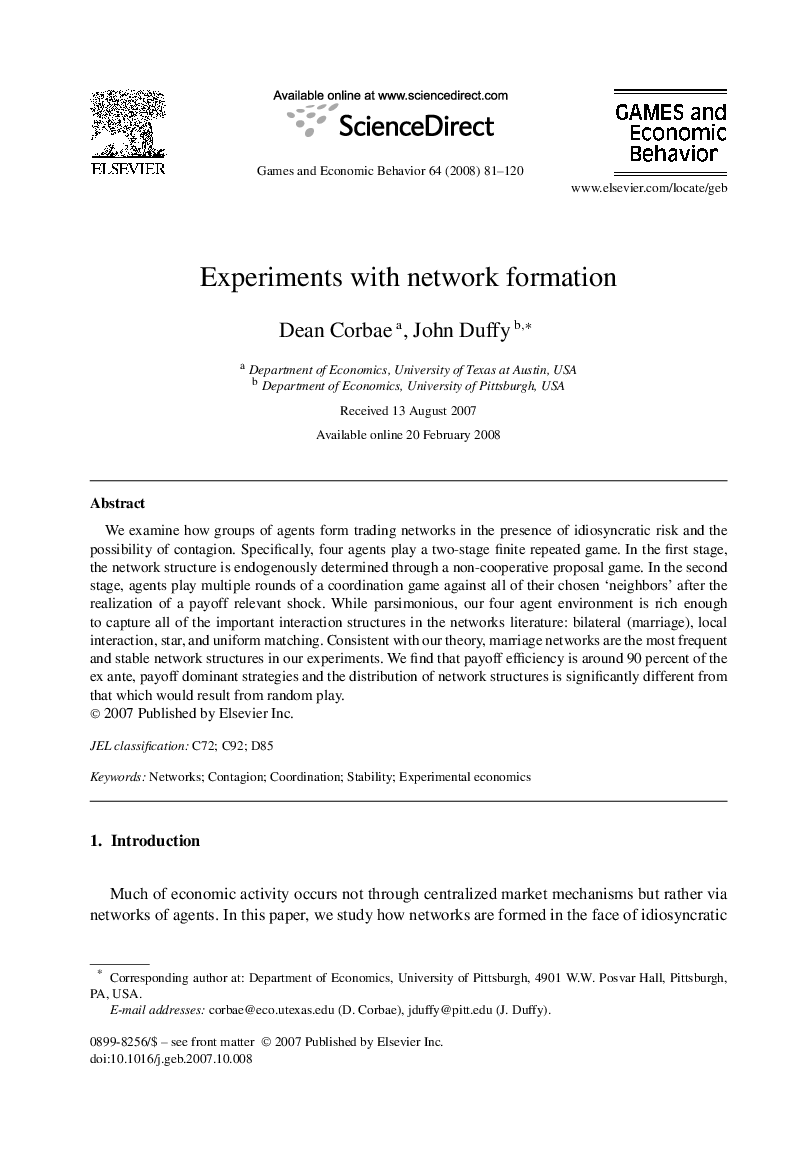| Article ID | Journal | Published Year | Pages | File Type |
|---|---|---|---|---|
| 5072884 | Games and Economic Behavior | 2008 | 40 Pages |
We examine how groups of agents form trading networks in the presence of idiosyncratic risk and the possibility of contagion. Specifically, four agents play a two-stage finite repeated game. In the first stage, the network structure is endogenously determined through a non-cooperative proposal game. In the second stage, agents play multiple rounds of a coordination game against all of their chosen 'neighbors' after the realization of a payoff relevant shock. While parsimonious, our four agent environment is rich enough to capture all of the important interaction structures in the networks literature: bilateral (marriage), local interaction, star, and uniform matching. Consistent with our theory, marriage networks are the most frequent and stable network structures in our experiments. We find that payoff efficiency is around 90 percent of the ex ante, payoff dominant strategies and the distribution of network structures is significantly different from that which would result from random play.
